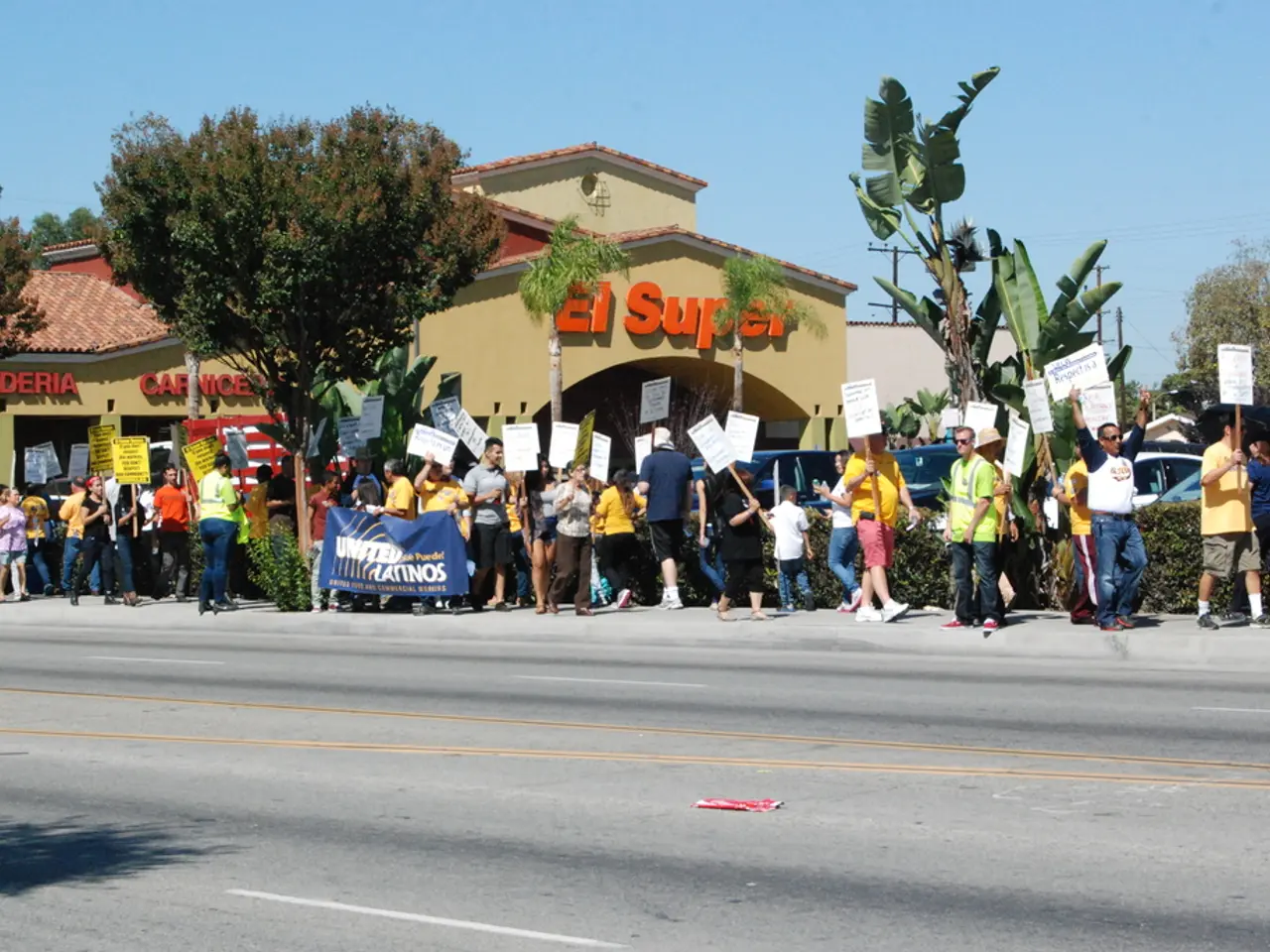Top-Tier Websites and Applications for Learning About Elections
The 2024 Presidential Election is fast approaching, and several nonpartisan resources are available to help students gain a clear, unbiased understanding of the electoral process. These resources, provided by educational institutions and civic engagement organisations, offer lesson plans, experiential learning opportunities, and digital interactives.
One such resource is Penn Charter’s Civic Engagement Curriculum. This comprehensive programme includes interactive lessons on election mechanics, national issues, and civic participation. The workshop "2024: U.S. Elections… You Decide!" offers values-based voter decision exploration, mock elections, press conferences, and opportunities for student-led civic activities [1].
National initiatives like the Your Vote, Your Voice, All In Campus Democracy Challenge, Vote411, Vote.org, and USA.gov provide vetted, nonpartisan lesson plans, election explainers, games, and interactive tools to educate students about voting and elections. These resources are recommended for colleges, universities, and K-12 settings to encourage informed and unbiased voting participation [3].
For those with an interest in deeper analysis, sources like the Roper Center and Virginia Elections Database offer datasets and polling information that can be used to build interactive projects about voter behaviour and election history [4].
Resources focused on disability and inclusion, such as Vote the Spectrum, provide nonpartisan educational content to foster inclusive civic engagement around the 2024 election [5].
iCivics offers several election-related games like Cast Your Vote, Branches of Power, and NewsFeed Defenders, available on iOS and Android [2]. C-SPAN Classroom Deliberations offers detailed lesson plans on topical election-related issues, and PBS Daily New Lessons: Election 2024 publishes lessons on the 2024 election, including videos, questions, and student activities.
Another interactive resource is the 2024 Presidential Simulation, which allows users to run simulations and make predictions about the Electoral College and the Presidency. Politico's "You be the campaign manager" allows users to assume the identity of a campaign manager and make crucial decisions for a presidential campaign.
These resources combine lesson plans, experiential learning (mock elections, workshops), and digital interactives to give students a clear, hands-on understanding of the 2024 election process grounded in nonpartisan civic education principles [1][3][5].
The article was updated on August 30, 2024.
[1] Penn Charter’s Civic Engagement Curriculum: https://www.penncharter.org/civicengagement [2] iCivics: https://www.icivics.org/ [3] Nonpartisan Voter Education Toolkits and Websites: https://www.campusvoteproject.org/resources/nonpartisan-voter-education-toolkits-and-websites/ [4] Election Data & Interactive Tools: https://www.ropercenter.cornell.edu/, https://www.elections.virginia.gov/ [5] Disability and Inclusion Focused Resources: https://www.autismvotes.org/
- A student may find the Penn Charter’s Civic Engagement Curriculum beneficial for learning about election mechanics, national issues, and civic participation, as it offers interactive lessons and workshops.
- To foster inclusive civic engagement around the 2024 election, resources like Vote the Spectrum are useful, providing nonpartisan educational content for students.
- For those looking for interactive projects about voter behavior and election history, the Roper Center and Virginia Elections Database offer datasets and polling information.
- To encourage informed and unbiased voting participation, educational institutions can make use of nonpartisan lesson plans, election explainers, games, and interactive tools provided by initiatives like Your Vote, Your Voice and Vote411.
- In the realm of education and self-development, one can learn about the 2024 election process by utilizing interactive resources like the 2024 Presidential Simulation or Politico's "You be the campaign manager," which provide simulations and allow users to make predictions or crucial decisions for a presidential campaign.




